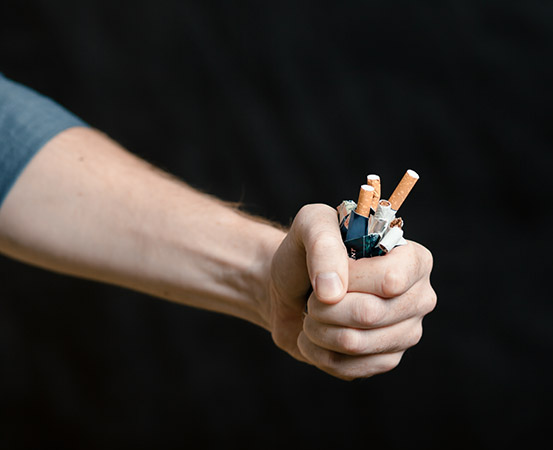
Consuming nicotine products has many detrimental effects on one’s health. Among the direct implications are its impact on cardiovascular health, joint health and last but not least, muscle growth. Nicotine directly affects one’s fitness and physical performance. The recovery process post-exercise will get slower, primarily due to nicotine’s impact on muscle growth and repair. That, in the long run, will lead to muscle loss, even if you follow a great workout routine.
How does nicotine affect muscle growth?
“Nicotine acts as a vasoconstrictor, narrowing blood vessels and limiting the delivery of essential nutrients and oxygen to the muscles. This hinders their growth and repair,” says Dr Hari Kishan, senior general physician, Kamineni Hospitals, Hyderabad.
Nicotine also disrupts the hormonal balance by increasing cortisol production, which promotes muscle breakdown and lowering testosterone levels, which is essential for muscle development. Additionally, its appetite-suppressing properties lead to reduced calorie intake, which impedes muscle building. “Sleep disturbances caused by nicotine’s stimulating effects can hinder muscle recovery, and the stress associated with nicotine addiction may indirectly impact muscle growth by elevating cortisol levels,” adds Dr Kishan.
Nicotine impairs anaerobic performance (any activity that breaks down glucose for energy without oxygen) and aggravates oxidative stress (an imbalance between the production of free radicals and the body’s ability to detoxify them), which impacts performance and post-exertion recovery.
Building muscle mass post-nicotine withdrawal
Balanced nutrition, focused on a diet rich in proteins, carbohydrates and healthy fats, provides the necessary fuel for muscle growth. This, along with a structured strength training program (targeting all major muscle groups) and gradual increases in resistance over time, stimulates muscle development. One can also incorporate cardiovascular workouts for overall health. However, it’s important to be mindful not to overdo them, as that could hinder muscle gains, especially if it leads to a calorie deficit.
“Prioritize adequate rest and sleep between workouts to promote muscle recovery, and stay adequately hydrated to support muscle function,” says Dr Kishan.
How to deal with nicotine withdrawal symptoms
According to the National Cancer Institute, an individual who quits nicotine feels tensed, anxious and agitated within the first 24 hours. This, in turn, leads to stiff muscles, more so in the neck and shoulder regions.
“To cope with the anxiety and stress associated with quitting, learn stress-reduction techniques such as mindfulness, meditation or yoga. Setting clear goals is crucial for both quitting nicotine and building muscle, and tracking your progress will help maintain motivation,” adds Dr Kishan.
Consider utilizing nicotine replacement therapy (NRT) products to effectively manage withdrawal symptoms and cravings, he notes. Additionally, seek out behavioral support through counseling, support groups or specialized apps tailored for nicotine cessation. These strategies prove highly effective in addressing cravings and triggers.
Staying physically active with exercises can serve as a distraction from nicotine cravings and help alleviate stress. Furthermore, adequate water intake aids in flushing out nicotine and its byproducts from the body at a quicker rate.
Finally, celebrate milestones and achievements in your journey to quit nicotine while building healthy muscle and enhancing fitness levels. Positive reinforcement can be a powerful motivator throughout this transformation journey.
Takeaways
- Nicotine affects muscle growth by limiting the delivery of essential nutrients and oxygen to the muscles, hindering their growth and repair.
- It also causes hormonal imbalances by lowering testosterone levels that affect muscle growth. Additionally, cortisol levels are also increased, which promotes muscle breakdown.
- After quitting nicotine, an individual should prioritize a healthy diet containing proteins, carbohydrates and healthy fats that provide the necessary fuel for muscle growth.

















